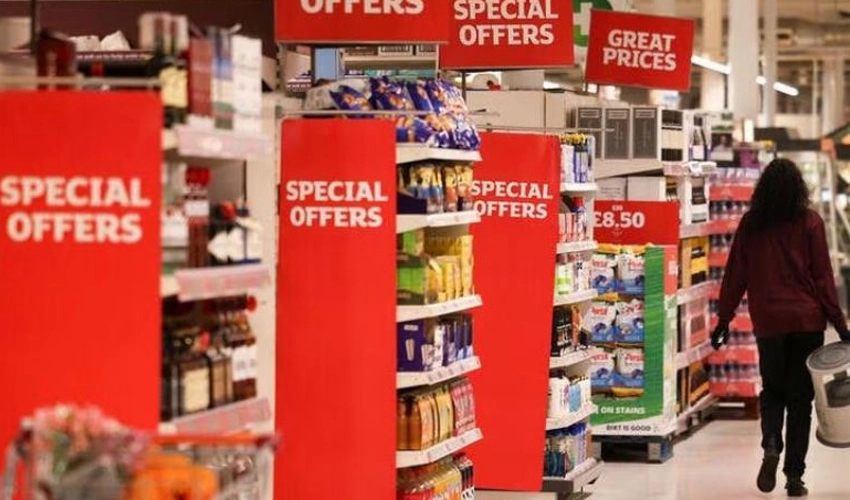UK avoids recession but 'not out of woods' over inflation

LONDON (AFP) - Britain's economy has narrowly avoided recession, official data showed Friday, but finance minister Jeremy Hunt warned it was "not out of the woods yet" over surging inflation.
Gross domestic product registered zero growth in the final quarter of last year, in line with expectations after shrinking 0.3 percent in the previous three months, the Office for National Statistics (ONS) said. Britain's flat growth in the fourth quarter contrasted with Europe's biggest economy Germany, whose GDP shrank 0.2 percent in the same period on fallout from the Russian invasion of Ukraine.
Overall, the UK economy expanded 4.1 percent last year after growth of 7.4 percent in 2021, the ONS added in a statement. Sky-high consumer prices have sparked a cost-of-living crisis in Britain -- and mass strikes. Transport walkouts weighed on December's output, the data showed.
"We are not out the woods yet, particularly when it comes to inflation," Hunt said, but he noted that "our economy is more resilient than many feared".
'No celebrating in street'
The technical definition of a recession is two straight quarters of negative growth. "While we can't slap the badge of recession on the economy, it's clear the UK is struggling and everyone is feeling the effect of the malaise in the country's economy," said AJ Bell analyst Laura Suter.
"This economic no-man's land of no contraction or no growth won't have people celebrating in the street." Bank of England (BoE) governor Andrew Bailey on Thursday expressed concern over persistently high inflation even if the rate of price increases shows signs of cooling.
His remarks to a cross-party committee of MPs raised expectations of more hikes to British interest rates, analysts said. At its most recent regular monetary policy meeting last week, the BoE hiked its interest rate for a 10th time in a row as global authorities race to combat runaway inflation.
The bank lifted UK borrowing costs by a half-point to four percent, the highest level since late 2008 during the global financial crisis. That ramped up mortgage and other loan repayments, weighing heavily on economic activity and worsening the cost-of-living crisis.
Those who have spare cash to save, however, are gaining from rate rises.
Soaring inflation
UK inflation slowed to 10.5 percent in December -- still around 40-year highs and more than five times the BoE's official target-level of two percent. Central banks the world over are seeking to cool high energy and food prices, fuelled by Russia's invasion of Ukraine one year ago, by hiking interest rates.
Conservative Prime Minister Rishi Sunak, whose government is partially subsidising energy bills for businesses and households, has vowed to halve UK inflation this year -- although much is down to central bank policy and market forces.
Sunak is seeking to turn around his government's currently dismal fortunes before a general election expected next year. The Conservatives -- in power since 2010 -- are trailing the main opposition Labour party by wide margins, polls show. Recession still looms -- the BoE last week said the UK economy would shrink in every quarter of 2023.
"We suspect the drags from high inflation and high interest rates will trigger a recession this year," Capital Economics analyst Paul Dales said Friday. The International Monetary Fund delivered another blow to Sunak when it predicted the UK would be the only country in the group of seven rich nations with negative growth in 2023.
The UK in 2020 suffered the biggest contraction among the G7 owing to Covid fallout. The nation is also the only G7 member that has not yet returned to its pre-pandemic level of output. British economic activity is 0.8 percent below its 2019 level, the ONS confirmed Friday.







